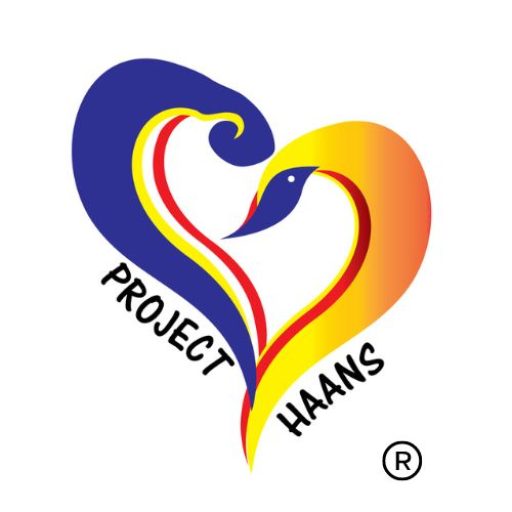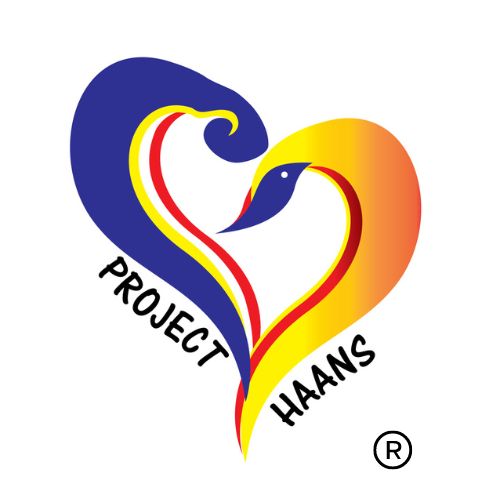In Malaysia, the OKU (Orang Kurang Upaya) card is more than just a form of identification—it’s a gateway to rights, legal protection, and access to vital support services for individuals with disabilities, including those who are neurodivergent. Nevertheless, there is no denying the stigma and misconceptions around the card which a perpetuated most times due to lack of understanding.
This results in many families, educators, and even professionals being unclear about what the OKU card actually entitles someone to. This article aims to highlight the key things Malaysians need to know about the OKU card, especially in the context of supporting the neurodivergent community.

What is the OKU Card?
The OKU Card is issued by the Social Welfare Department (JKM) under the Ministry of Women, Family and Community Development. It is given to Malaysian citizens who meet the criteria under one of seven officially recognised disability categories, including learning disabilities, which covers neurodivergence such as autism, ADHD, dyslexia, dyscalculia and dysgraphia. For the full list of categories, refer here.
The card functions as an official acknowledgment that the individual is a person with disability under the Persons with Disabilities Act 2008 (Act 685).
Legal Rights and Protections
Under the Persons with Disabilities Act (PWDA) 2008, all OKU individuals are entitled to non-discrimination, equal access, and reasonable accommodation in the following areas:
- Education
- Employment
- Healthcare
- Public Facilities
- Transportation
- Information and Communication Technology
This means that if a child with autism is denied entry into school due to their diagnosis, or if an autistic adult is unfairly dismissed at work due to sensory sensitivities, this may constitute discrimination under the law. Although the Act currently lacks punitive enforcement mechanisms, it does serve as a guiding framework for advocacy and policy.

Key Benefits and Services for OKU Cardholders
Some of the tangible benefits of holding an OKU card include:
1. Healthcare Access
- Free or reduced-cost medical treatment at government hospitals and clinics.
- Priority access at some healthcare facilities.
2. Education Support
- Placement in special education programs or inclusive schools.
- Eligibility for early intervention services for children with autism.
- Access to therapy services at government centres or through community partnerships.
3. Financial Assistance
- Monthly allowances under schemes such as:
- Tax reliefs for parents or guardians of OKU children.
4. Employment Support
- Participation in government employment quotas for OKU.
- Job coaching and training programs via PERKESO and JKM.
5. Transportation and Parking Privileges
- Discounted or free fares on public transport (e.g., RapidKL OKU card).
- Eligibility for OKU parking stickers. These are mainly for those with physical disabilities. Certain municipal councils provide their own OKU stickers for vehicles to access OKU parking spots within their municipality only. Do check in with your local municipal council. More on OKU parking stickers here.

Special Note: Autism and the OKU System
Autism is officially recognised as a developmental disability under the OKU registration. However, many autistic individuals and families remain unregistered, often due to:
- Lack of awareness or understanding about the process.
- Stigma associated with carrying the “OKU” label.
- Misinformation, such as thinking only individuals with visible or severe disabilities qualify.
Yet, autism often involves invisible challenges—communication differences, sensory sensitivities, executive functioning struggles—that can significantly affect daily life. The OKU card can be a tool for support, not a limitation.
Families of children with autism often face long waitlists for therapies, schooling difficulties, or social stigma. The OKU card can help with early access to government-supported services, participation in autism-specific programs, and navigating the education system with better advocacy power. Nevertheless, having the OKU card does not shorten the waiting for much needed services.
Registration Process
To register for the OKU card:
- Obtain a medical or psychological report from a government-recognised specialist confirming the diagnosis.
- Submit the report along with supporting documents (MyKad/MyKid, photographs, birth certificate, etc.) to your nearest JKM office.
- Upon verification, the OKU card will be issued.
Note: Registration is voluntary but highly encouraged. The process can now also be initiated online via JKM‘s website here.
Moving Towards Acceptance and Inclusion
It’s important to understand that having an OKU card does not define an autistic person’s potential. Instead, it allows society to level the playing field by acknowledging differences and offering the right kind of support.
We must shift the narrative—being OKU is not a weakness, but a recognition of diversity. Whether it’s for a non-speaking autistic child needing AAC support, or an adult on the spectrum seeking sensory-friendly workspaces, the OKU card can open doors—if we understand how to use it, and if society chooses to honour it.

A common misconception is that people who hold an OKU card are exempt from legal consequences if they commit a crime or violate the law. This is not true.
Holding an OKU Card Does Not Mean Immunity from the Law
✅ What the OKU Card Does Do:
The OKU card identifies a person as having a disability and entitles them to reasonable accommodations and protection from discrimination under the Persons with Disabilities Act 2008 (PWDA) and other related policies.
❌ What the OKU Card Does Not Do:
It does not give immunity from the criminal justice system. If a person with an OKU card—whether autistic, intellectually disabled, or physically impaired—commits a crime, they are still subject to Malaysian law.
So How Is the Legal Process Different for an OKU Individual?
If a person with a disability is in conflict with the law, there are procedural protections that may come into play:
1. Mental State Considerations (Legal Capacity & Criminal Responsibility)
- Courts may consider whether the person understood the nature or consequences of their actions at the time of the offence.
- For individuals with significant intellectual or cognitive disabilities, lawyers may raise the insanity defence or diminished responsibility under the Penal Code—but this is a complex legal process, not automatic.
2. Fitness to Stand Trial
- If an OKU individual is unable to understand court proceedings or instruct a lawyer (e.g., due to severe intellectual or developmental delays), the court may order a psychiatric assessment to determine whether they are fit to stand trial.
3. Alternative Sentencing or Rehabilitation
- In some cases, the court may consider diversionary programs, supervised care, or treatment in place of conventional punishment.
- However, this depends on judicial discretion, the nature of the offence, and expert evidence (e.g., from psychiatrists or psychologists).
In Cases Involving Autistic Individuals
It is especially important to understand that autism is a spectrum. Some autistic individuals may:
- Have limited understanding of social rules or consequences.
- Exhibit challenging behaviours when overwhelmed or misunderstood.
- Be vulnerable to manipulation or coercion by others due to a desire to fit in or difficulties with social cues.
This doesn’t excuse harmful actions—but it does highlight the need for the justice system to take a nuanced approach, including:
- Ensuring access to legal representation that understands neurodevelopmental disabilities.
- Providing communication support or advocates during interrogation or court proceedings.
- Considering appropriate sentencing that focuses on rehabilitation, support, and safeguarding, especially for non-violent offences.
Why This Matters
Misuse or misinterpretation of the OKU card can be harmful to both:
- Public trust: People may think the system is being exploited or that OKU individuals “get away” with harmful actions.
- Persons with disabilities: Especially those who are misunderstood, falsely accused, or denied appropriate support during legal proceedings.
The goal of recognising disability in law is not to shield people from consequences—but to ensure fairness, dignity, and equal treatment, including appropriate support or interventions where needed.
In Summary
✅ The OKU card offers support, not immunity.
✅ Autistic individuals are not above the law, but may require adaptations to understand and navigate it.
✅ Malaysia still needs more specialist training for law enforcement and legal professionals to handle such cases sensitively and fairly.
✅ Advocacy is essential to make sure that justice is not just equal, but equitable.
The Kita Family podcasters had the opportunity to interview Tuan Pathmanathan A/L R. Nalasamy, the Director of the Department of Social Welfare’s Department of Development of People with Disabilities (JPOKU). Watch the full episode on YouTube or listen on Spotify.





